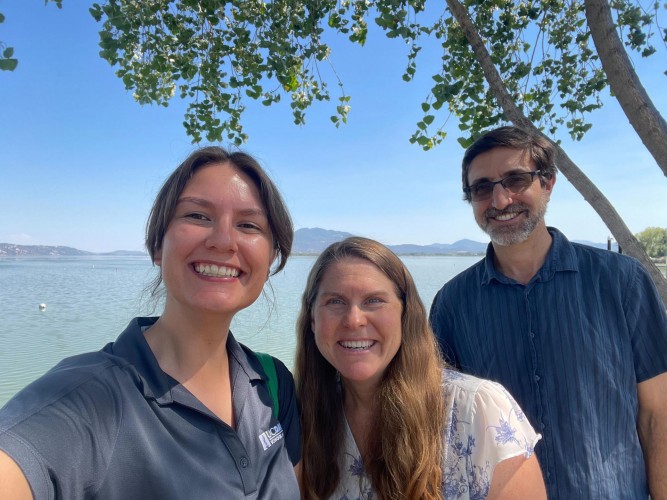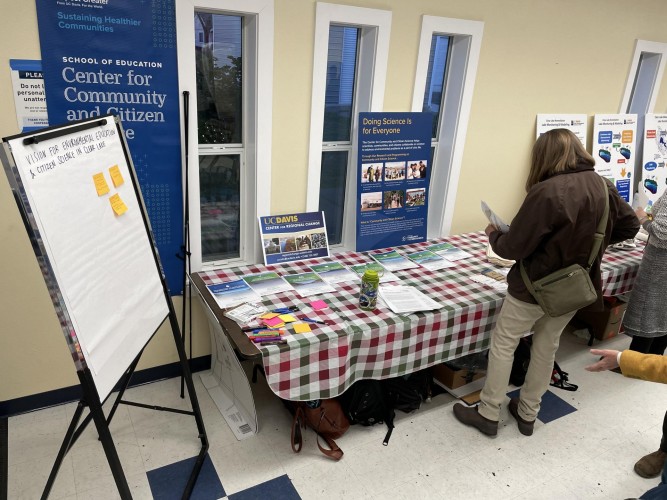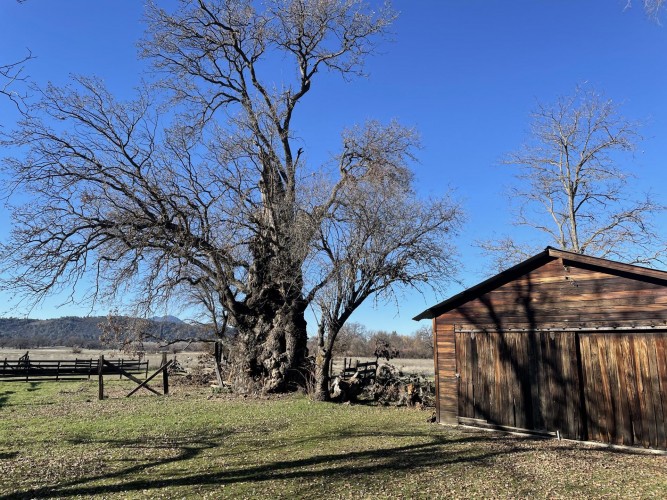CCS Clear Lake Environmental Education and CCS
Project Update: Clear Lake Evaluation Report
A few months after the Caring for Clear Lake Project concluded in July, we are now pleased to share that the evaluation report has been completed. The report includes interviews with members of the CRC Socioeconomic Subcommittee and Clear Lake Blue Ribbon Committee, alongside an end-of-training survey with participants meant to evaluate the efficacy of the program and challenges faced during implementation. It also contains a detailed review of the results and recommendations for ways that projects can foster even more community involvement moving forward.
Project Update: Caring for Clear Lake project closing reflections
Looking back at the last two years
 With the Caring for Clear Lake
project coming to an end this July, the UC Davis team reflects on
collaborating with Tribes and the community in
co-developing environmental education materials that integrate
local participatory science projects. We share how the
community engagement process evolved
and guided the frameworks used for structuring the
materials.
With the Caring for Clear Lake
project coming to an end this July, the UC Davis team reflects on
collaborating with Tribes and the community in
co-developing environmental education materials that integrate
local participatory science projects. We share how the
community engagement process evolved
and guided the frameworks used for structuring the
materials.
Project Update: Training Presents Drafted Environmental Education to Support Clear Lake Stewardship
Inspiration and next steps
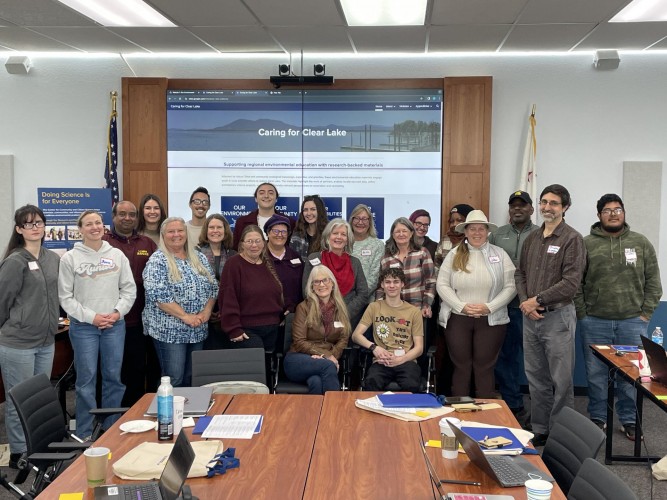 In March, the UC Davis Center for
Community and Citizen Science and Center for Regional
Change facilitated a two-day training in Lakeport
with educators and partners from across the region as
part of the Caring for
Clear Lake project. The training is a milestone for the
two-year project, approved by Blue Ribbon Committee for the
Rehabilitation of Clear Lake and funded by the California Natural
Resources Agency.
In March, the UC Davis Center for
Community and Citizen Science and Center for Regional
Change facilitated a two-day training in Lakeport
with educators and partners from across the region as
part of the Caring for
Clear Lake project. The training is a milestone for the
two-year project, approved by Blue Ribbon Committee for the
Rehabilitation of Clear Lake and funded by the California Natural
Resources Agency.
FREE Training: Environmental Education for Clear Lake educators
Saturday, March 30, 2024
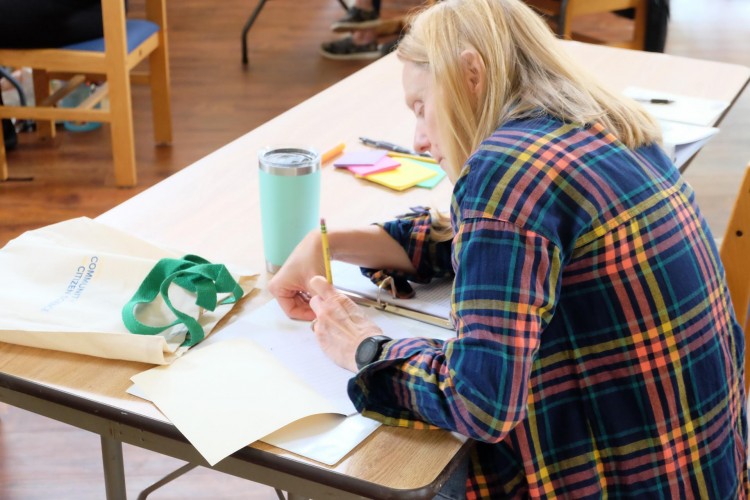 Saturday, March 30, 2024
Saturday, March 30, 2024
8:30 AM – 4:00 PM
Lake County Office of Education (Kesey Room), 1152 S Main St,
Lakeport
Register here
OPTIONAL March 29, 2024 (field day)
10:00 AM – 2:00 PM
Rodman Preserve
Calling all Clear Lake educators: Feedback needed on draft materials
Are you an educator working with youth in Lake County? Your skills and experience are needed!
The UC Davis Center for Community and Citizen Science and Center for Regional Change are drafting environmental education materials to support ongoing local efforts to improve the health of Clear Lake and its watershed.
Project Update: Clear Lake Reflections
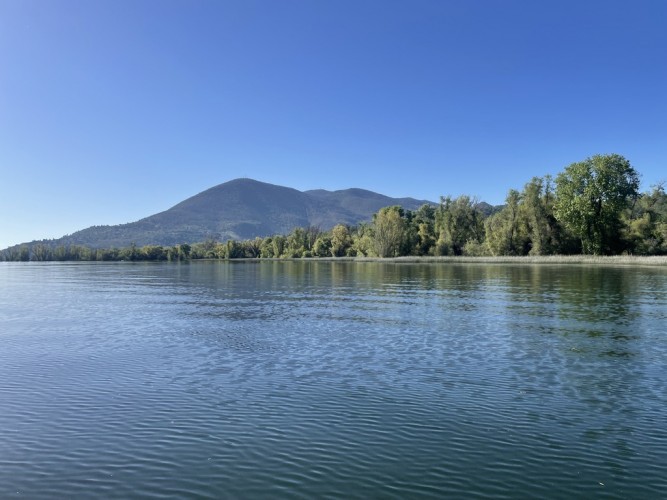 Singing, dancing, eating, swimming,
paddling, greeting: summer is an amazing time to be out at Clear
Lake!
Singing, dancing, eating, swimming,
paddling, greeting: summer is an amazing time to be out at Clear
Lake!
July marks the halfway point of the Blue Ribbon Committee for the Rehabilitation of Clear Lake (BRC)-funded project in Clear Lake. What better way to celebrate this milestone than to join the community during Robinson Rancheria’s Shigom Nature Day, Big Valley Band of Pomo Indians’ Tule Boat Festival, and Scotts Valley Band of Pomo Indians’ Big Time.
Project Update: Net-Working with the Clear Lake Hitch
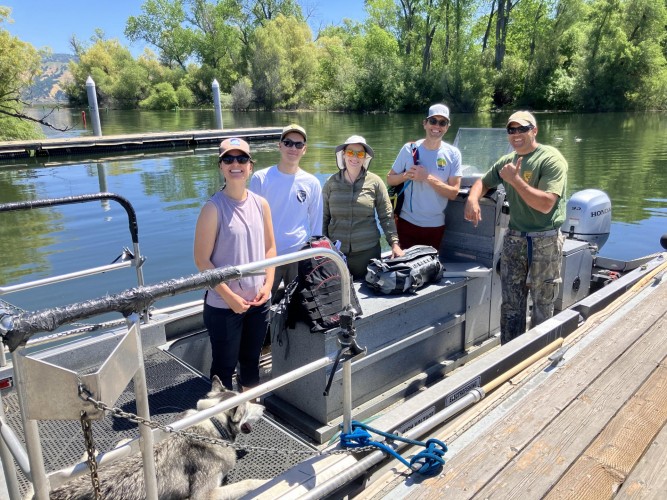 What’s the best way to get to know
Clear Lake? A boat ride, of course!
What’s the best way to get to know
Clear Lake? A boat ride, of course!
Not just any boat ride. We recently joined California Department of Fish and Wildlife (CDFW) as staff conducted the last electrofishing survey of the season. These surveys are one of many community-wide efforts to monitor Clear Lake hitch populations, which is a culturally important species to Tribes and endemic to Clear Lake.
Project Update: Inspirations after a visit to Lake County
Since July 2022, the Center for Community and Citizen Science has been steadily working on a project in collaboration with the UC Davis Center for Regional Change to build capacity for environmental education (EE) and community and citizen science (CCS) in the Clear Lake region.


